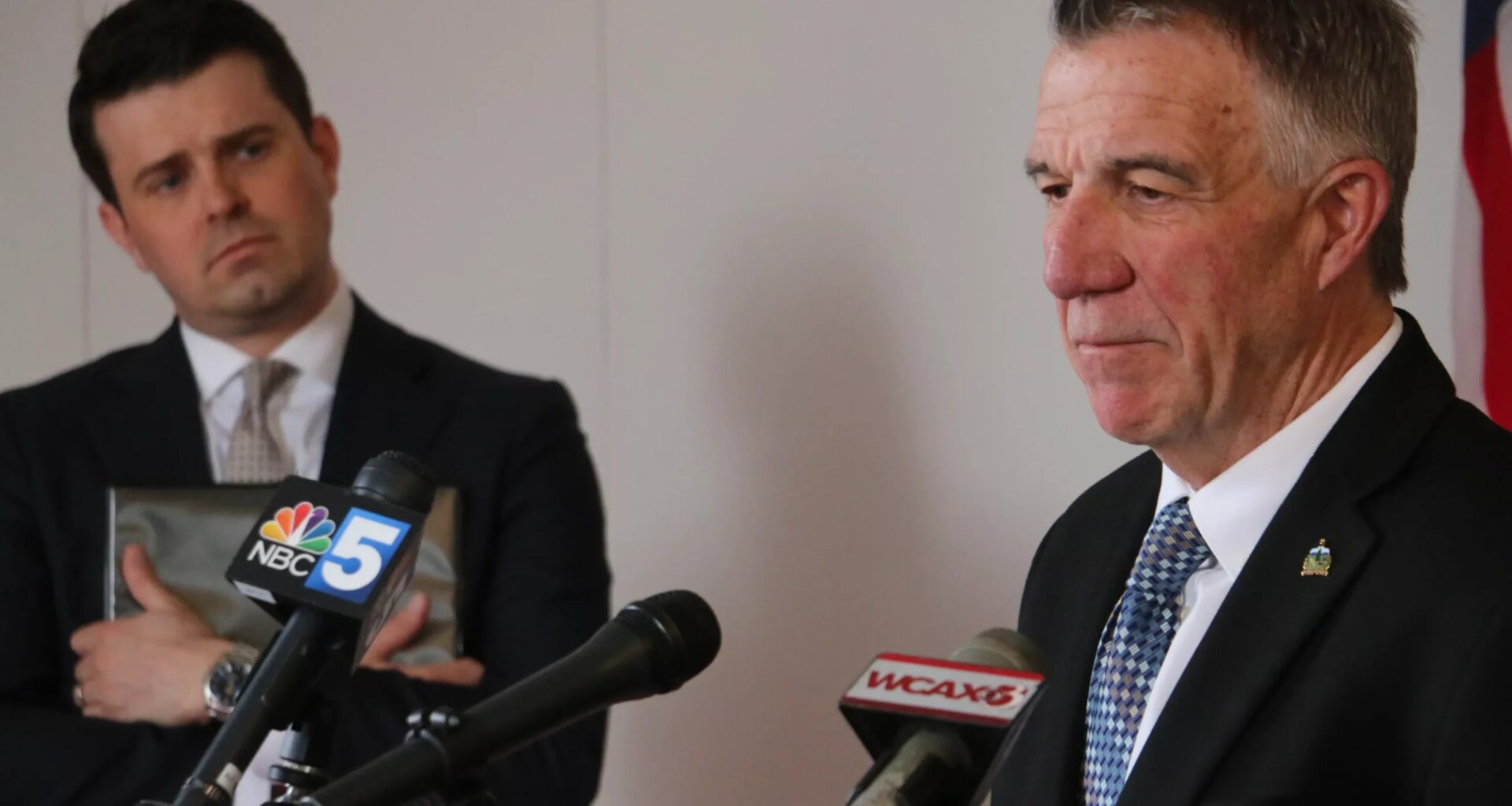Vermont has quietly renewed its contract to hold federal immigration detainees in state prisons, and, despite calls from state lawmakers and advocates to beef up the protections and services provided to detainees, the new agreement is nearly identical to the old one.
The lone difference between the two pacts is the amount the feds will pay the state. Instead of $180 a night per detainee, the Department of Corrections will now receive $185. That rate will increase incrementally to $208.22 by August 2029, after which it will increase 3 percent each year. The contract does not have an expiration date.
The new “memorandum of understanding,” signed by Corrections Commissioner Jon Murad on September 4, went into effect on Friday.
Gov. Phil Scott decided to renew the agreement after hearing from “many, including those who have been detained, that they were glad to be in Vermont where their families, friends, and legal teams are and have better conditions than other out of state facilities,” his spokesperson, Amanda Wheeler, said in a statement.
Lawmakers and advocates working with detainees said they were unaware that the new agreement had been signed.
Jill Martin Diaz, executive director of the Vermont Asylum Assistance Project, was glad to hear it was renewed, if only to ensure detainees will not be sent out of state by default.
But Diaz, who has been pushing for more regular access to legal services for detainees, said they were disappointed the agreement doesn’t address any of those concerns directly.
“Glad to hear there’s still access, not surprised to hear that there aren’t any additional protections, especially based on how significant prisoner’s rights issues have been getting in the way of our ability to do meaningful legal work,” Diaz said.
Vermont has long had an agreement with U.S. Customs and Border Protection and Border Patrol to hold federal detainees. Until recently, most would spend about 72 hours in a Vermont correctional facility before being moved elsewhere, former Corrections commissioner Nicholas Deml told lawmakers in July.
But since President Donald Trump took office in January and ramped up immigration enforcement, the number of detainees and the amount of time they spend in Vermont prisons has been growing, Deml said. Increasingly, Vermont facilities are also being used to house U.S. Immigration and Customs Enforcement detainees from other states.
The result is a system that is struggling to process a higher volume of people while facing a heightened need for medical, legal and language services to accommodate their longer stays.
In his July testimony to the legislature’s Joint Justice Oversight Committee, Deml said that while the number of ICE detainees housed in Vermont prisons at any given time hasn’t gone above a cap of 22 men and 11 women, the number of people moving through the system has increased significantly.
He shared a graph that showed ICE detainees spent fewer than 100 combined days in Vermont facilities in July 2024, compared to about 400 this May.
Corrections also has a contract with the U.S. Marshals Service to house federal criminal detainees. Deml’s agency was in the process of renegotiating the daily reimbursement the state gets for housing those prisoners.
“We have worked very closely with the Marshals Service to increase their rates, so hopefully turning to ICE next and saying, ‘OK, this is a big burden, and it’s expensive to house these folks — if you want us to provide this service to the federal government, what can the federal government do for us?’” Deml said in the meeting.
But Deml, who left his post in mid-August, noted that Gov. Scott has the sole authority to negotiate contracts with federal immigration officials.
Following Deml’s testimony, the Joint Legislative Justice Oversight Committee sent Scott a letter, urging him to take into account a handful of issues during the negotiations.
The committee, chaired by Rep. Alice Emmons (D-Springfield), called for assurances that Vermont’s correctional facilities would be adequately resourced and notified 24 hours in advance of any incoming or outgoing ICE detainees, and that all such movements would happen during business hours, after reports that ICE was moving people in the middle of the night.
The committee also requested that detainees receive “proper and timely” legal representation and foreign language services, and that the state be reimbursed fully for all costs to house detainees, including medical and transportation costs.
“We based our information on what was testified to us by DOC,” Emmons said in an interview on Tuesday. “We knew it created a lot of turmoil in DOC facilities, a lot of pressure on their staffing, and they weren’t getting reimbursed adequately.”
Emmons said she had not seen the new agreement and so could not comment on it. DOC referred requests for comment to the governor’s office.
In April, in the wake of the high-profile detention of Palestinian activist Mohsen Mahdawi, some Vermont Senate leaders called for Scott to cancel the federal agreement altogether. At the time, the governor said he worried that doing so would lead to Vermont detainees being taken to other states.
“I get the frustration,” Scott said. “But is that in the best interest of those who are detained, to just ship them off to somewhere else, Mississippi, Texas, wherever?”
Read the full agreement below:

